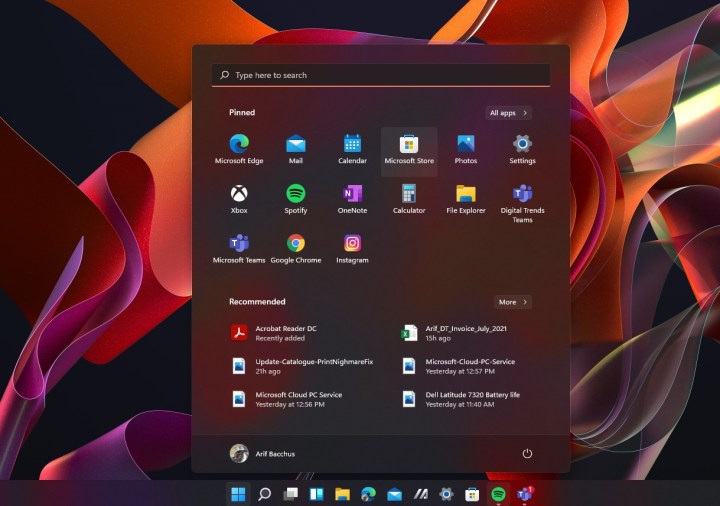
Microsoft is currently testing a new way to showcase ads on the Windows 11 Start Menu, and it’s meant to encourage users to download more applications.
The brand has used the top of the Windows start menu as an area to showcase general ads in the past, and it was not well-received by system users. However, it is now experimenting with putting what it calls “app promotions” at the bottom of the start menu area, according to Windows Central.
These app promotions would show up in the Recommended section of the Windows start menu, with a promoted ticker so you know that they are ads. Still, if you’re not careful, you could end up clicking an icon that you thought was a program already set up on your system and end up installing an application instead.
Looks like the Start menu's Recommended section will be getting app promotions, similar to suggested apps in Start in Windows 10. This can be toggled off from Settings (Show recommendations for tips, app promotions, and more). pic.twitter.com/zYYnTKs9qw
— PhantomOcean3 🌳 (@PhantomOfEarth) April 9, 2024
Some folks have shared details of the feature Microsoft is currently testing on X (formerly Twitter). One user, PhantomOfEarth, showed screenshots of how an app promotion of the Opera browser looked next to a Gamer Bar installed application.
The potential feature is optional, with the ability to opt out easily accessed in the Personalization section of Settings. There are questions about whether these recommended apps are legitimate ads, as the publication noted that some users mistakenly identify the standard notifications in native applications, such as OneDrive, as ads. However, the fact that Microsoft has to denote that the icon is a promotion indicates that it is an ad.
PhantomOfEarth also explained that the feature was referred to as an ad in prior beta builds of Windows 11; however, it is now being called app promotions in the current beta build Settings.
If app promotions were a feature that came to a public version of Windows 11, it would surely benefit Microsoft financially, especially in the wake of the brand opening its app store to Win32 apps in 2022. Notably, the Opera app demoed in the screenshots would likely have had to be downloaded manually in the not-so-distant past.
Editors' Recommendations
- Microsoft announces a new threat to push people to Windows 11
- Windows 11 vs. Windows 10: finally time to upgrade?
- The Windows 11 Android app dream is dead
- A new Windows 11 hardware system requirement may be incoming
- Windows 11 will use AI to automatically upscale games




